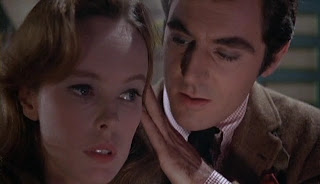The Siren can't tell you exactly when and where she first heard the rumor that Wallace Beery, the great star of such movies as Beggars of Life, Grand Hotel, Dinner at Eight, Viva Villa! and Treasure Island (to name just a few of her own favorites) was a murderer. She's encountered it more than once. If the Siren dug hard enough she might find that it's popped up in comments here once or twice.
Beery, whose career included many lovable oafs as well as villains, does not appear to have been especially lovable in real life. Gloria Swanson gives horrendous details of her marriage to him in Swanson on Swanson, for starters. Louise Brooks had fond recollections of Beery; Margaret O'Brien did not.
Plus, Beery looks like a brute. Looks matter everywhere, and so does image, but in Hollywood, they are close to everything. So it's not hard to see why a certain allegation, that Beery was one of three men who beat Three Stooges creator Ted Healy outside the Trocadero nightclub in 1937, gained so much traction so rapidly. Supposedly, after Healy died of his injuries, Beery was hastily sent abroad by MGM VP Eddie Mannix, and the whole matter was hushed up because the studios were so powerful.
Still, surely we can agree that no one should be memorialized as a murderer without some damn good evidence. That also goes for Albert R. Broccoli, the latter-day James Bond producer who's also alleged to have been one of Healy's attackers; and it even goes for Pat DiCicco, the third man in this fable, a Hollywood figure who was married to Thelma Todd and whose second wife, Gloria Vanderbilt, says DiCicco abused her.
That is why Larry Harnisch, of the Los Angeles Times and the wonderful blog L.A. Mirror, deserves every last eyeball his series, "The Death of Ted Healy," can get.
Here's what Larry has done:
1. He found the relevant passage about the "Beery beat Healy to death" rumor in several different Wikipedia entries. (Larry does not like Wikipedia. He has excellent reasons. The Siren finds Wikipedia useful as a starting point and not much more; Larry builds such a case for the prosecution that going forward, the Siren may not even use it for that.)
2. Larry went back to the sources cited by Wikipedia.
3. He went back to the sources that were cited in the sources that were cited by Wikipedia.
4. And then, with precision and unflagging zeal, he went to newspapers and other records from the relevant period.
Does it count as a spoiler to say that Larry demolishes this story?
The Siren urges her patient readers, in the strongest possible terms, to read these posts. Follow this link to Larry's wrapup. Then, go and click on the links to all the parts. The Siren read the material in a couple of hours. Larry starts the posts with a disclaimer that his meticulous fact-combing is "tedious." It is not; it's enthralling.
The posts do, however, show that checking up on a good sleazy Hollywood rumor is a damn sight harder than popping by a website to say "I never liked Beery in The Champ and anyway I heard he murdered one of the Three Stooges."
Facts matter; evidence matters; history matters. But with Hollywood, more than any other topic the Siren can name, rumor and innuendo hold sway. You want to say that General XYZ once shot a lance corporal because he didn't like how the guy was standing? (I made that up, folks.) In short order a military historian will show up to say "Hold the phone, Sunshine. What's your source?" You want to say a famed director was the Black Dahlia killer? Go right ahead. You might even get a book deal. (One of Larry's projects concerns the Black Dahlia case--the facts of the case.)
Everybody loves a bit of gossip; lord knows the Siren does. Used as an aside, and clearly identified as what it is, gossip gives spice to life. But it should never be dressed up to resemble a fact. Nor does wild, unsourced gossip deserve to be the echo you hear every time a star's name is spoken, like the horse-neigh for "Blucher."
Wallace Beery: a louse and a rapist, probably. (The Siren believes Swanson.) A murderer? Not only could you not get that to hold up in a court of law, you couldn't get the attention of a halfway decent shoe-leather reporter. Who's dead drunk. On a slow Tuesday night. At the Trocadero. Sitting under a photo of Ted Healy.
Thank you, Larry.



